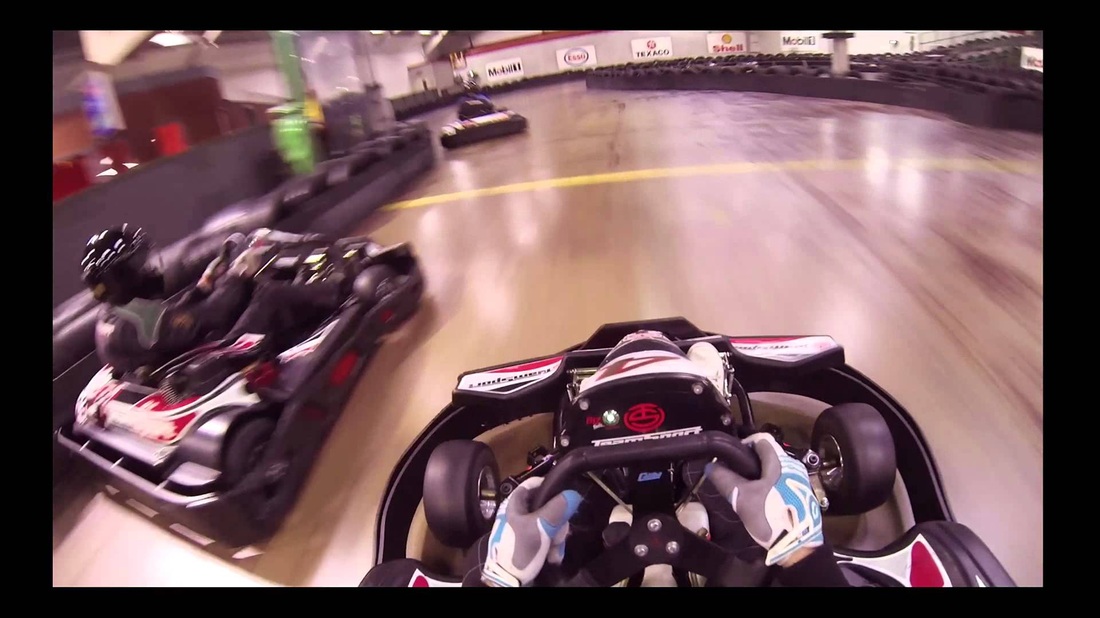Recently I went bowling with some friends and, like pretty much everyone else, it’s something I’ve always enjoyed. But there’s one thing about bowling that’s frustrated me for as long as I can remember:
I am terribly inconsistent. Some games I can bowl a Spare near every shot, maybe even knock down a couple of Strikes in a row. Other games though? I can barely crack the century. I’ve changed all different things- the weight of the ball I use, how I walk up to the lane, what I focus on as I bowl. I even thought I was onto a winner back in high school because whenever I stepped up to the lane I’d think of a hilarious scene from a movie or TV show- and it seemed to work. Until it stopped working. So when I went bowling again recently, it’d been a while and I tried a few different things – but I haven’t found the “it” factor that’s turned me into a consistent bowler. Yet…
Another ball game I had no consistency with was of the table variety – I’m talking pool or snooker. I’ve always enjoyed playing, and recently I found a venue with full-sized snooker tables that’s walking distance from my place. With less daylight hours during winter limiting how far I can hike, I’ve recently developed a habit of going for shorter walks to the venue with these tables and playing solo for 45 minutes. The difference when playing solo is that I’m not focused on beating an opponent or a score. Instead I’m simply focused on getting better (more consistent), where the actual outcome of a shot generally correlates with how I intend the shot to go when I strike the white ball with the cue. Sometimes I purposefully choose a more difficult shot just to test myself. Overall, I am becoming more consistent since I’ve begun practising 2 or 3 times a week. I’m getting better.
The Right Stuff
On the other hand, something I’ve never lacked consistency with (like bowling) or needed to practise extensively (like snooker) is race driving. From the first time I drove a go-kart when I was 9 years old it’s always felt straight-forward: if I want to go faster, push the accelerator. If I want to slow down or steady the kart, hit the brake. When I steer left the kart goes left and when I steer right the kart goes right as I want it to. Maybe I’m stating the obvious, but (based on what I’ve heard time and time again over the years) the part a lot of people struggle with is doing all the above while going fast. Yet I’ve never climbed into a new kart and felt uncomfortable or out of place. At a hire-kart track (where you may well sit in a different kart every session) each kart can have different characteristics from the last one- a harder brake pedal, a looser accelerator, little dings or bends in the chassis that change the handling somewhat. But I can adapt to these differences quickly and figure out how to drive fast laps in this particular kart. Racing karts is something I can go months – even years – without doing, then go to a track and it’s like I was never away. For one reason or another, I always found it simple.

Of course, everybody has an opinion. When you get one person’s viewpoint, you have to consider the source: their lived experience, their personality, characteristics, sensibilities etc. But if different people with different lived experiences, personality and different relationships to you all say similar things, it’s worth considering there’s a common theme there. For me, my writing ability is one of these things. What is reasonably straightforward and just a matter of time for me, is apparently an unthinkable task for others. On the one hand, writing (like racing a kart) is something I’ve always enjoyed and something I can do quite well. Yet to some degree, it wasn’t something I did well right from the start…
In The Beginning…
The very first stories I wrote were just pictures with a completely random jumble of letters next to them. As my kindergarten teacher told my parents “The spelling isn’t important at this stage”. So I’d write line after line of either words how I imagined they were spelt, or I’d insert a letter simply because I felt like it. Looking back through those scrapbooks, I wish I knew what I was talking about- but I can’t read the stories. Over time, I got better, and by Year 1 my stories become semi-coherent.
I was about 8 years old when I began writing actual stories in my own personal time, mostly fan-fiction (if you could say I was an actual fan of the source material) or stories that were really just an excuse to talk about/ draw my favourite subjects: trains and racing cars.
By the time I was in Year 4, I was fluent at writing stories that were legible, but also had a clear beginning, middle and end. I also noticed that if I stood before the class and read aloud, people enjoyed hearing what I wrote. I was in a composite class, and so the older 5th graders laughing at my characterisations of people felt pretty cool. But this was just a glimpse of what was to come…
In Year 7 English, our prescribed texts where Boy and Going Solo, both autobiographies of Roald Dahl where he tells the story firstly of his boyhood and his schooling days, then of his time flying in the RAF. Our major assignment was then to write our own autobiography. My great memory, plus 5 years’ writing experience, meant that I had plenty to share- and in the end my assignment (titled Some Kid) was 25 pages long. I received top marks for my submission, and again read sections aloud before the class. Sharing stories of my (short) life up to that point and making the class laugh – including the girls – made me feel like a rockstar. I had these people in the palm of my hand. It was powerful stuff!
Over the next 15 years I wrote a whole bunch of different things – scripts for assignments, short stories for class, long stories for class, personal projects for my own amusement. But it wasn’t until I was well into my 20’s that I decided to begin journalling. At the time it was simply to record all the goings-on in the life of myself and (by extension) my friends. They were good times, and I figured it’d be a shame to let them pass by unrecorded. By the same token, I wanted something to come back to, written in the moment, in case I made the mistake one day of thinking back and imagining that everything was better (footnote – it definitely wasn’t).
Writing In The Here And Now
While the people, the period in life and the backdrop have all changed several times over, I still journal to this day. It’s not something I do every day, in fact sometimes I’ll go a week without writing a single new entry. But it’s rare to go more than a week without feeling the need to note something down of significance. Some entries are just a paragraph and are rather dull. Others have taken over 2 hours to complete because there’s so much detail I feel necessary to include and refine until it sounds right when I read it back.
Journalling started as a choice. Done consistently, it became a habit and at some point, it became something I don’t have to schedule or make an effort for. There’s simply a moment where I’ve had a big day and involuntarily think Shit- this is going to take some time to write down! I just know I’m sitting down to journal it all…
Chains are formed firstly by choices. Making a choice and doing so on a consistent basis, leads to that choice becoming a habit. From gym workouts to gambling, there is a difference between the person who does it casually and the one who does it habitually. If this habit doesn’t stop, it becomes an automatic thing – it takes little willpower or conscious effort to do that activity.
A single link (the choice) over time transforms into an automatic chain that is part of our nature.

This is where I am today – even when I’m not working on a client project or a piece of marketing content, I’m brainstorming different story ideas or re-writing song lyrics for the amusement of a friend (did that literally last night, in fact) or I’m making a new journal entry. To not write would feel quite unusual. We choose our chains – so what do our habits become?
If you’d love to improve your writing skills (like I’m currently improving my skills with a pool cue) it starts with the conscious choice to write. A short story, a journal entry, an article just like this one. Do it consistently and it transforms into a habit. Given time, writing becomes something that is automatic and a distinct part of your business – part of your life – part of you. And I can guarantee that your writing will improve out of sight!
I recently dug out a print copy of that autobiography I wrote for Year 7 English, and looking at the difference between my writing for that assignment and my writing now is like the difference between the climate and the day’s light at 5pm on a June afternoon and the conditions at the same time on an afternoon in the Christmas holidays.
In Japanese culture, there is a term known as KAIZEN – which describes the mentality of seeking constant improvement in every aspect of your life. The theory is that if you don’t see a man for three days, when you see him again you should notice some positive change in him, however small. As Lao Tzu said: Do the difficult things while they are easy and the great things while they are small. The journey of a thousand miles must begin with a single step.
So if you want to write like a pro, just sit down and write- start somewhere. Do it consistently, and over time, you might just be amazed at the results…

Get your consultation today – click here
0 Comments